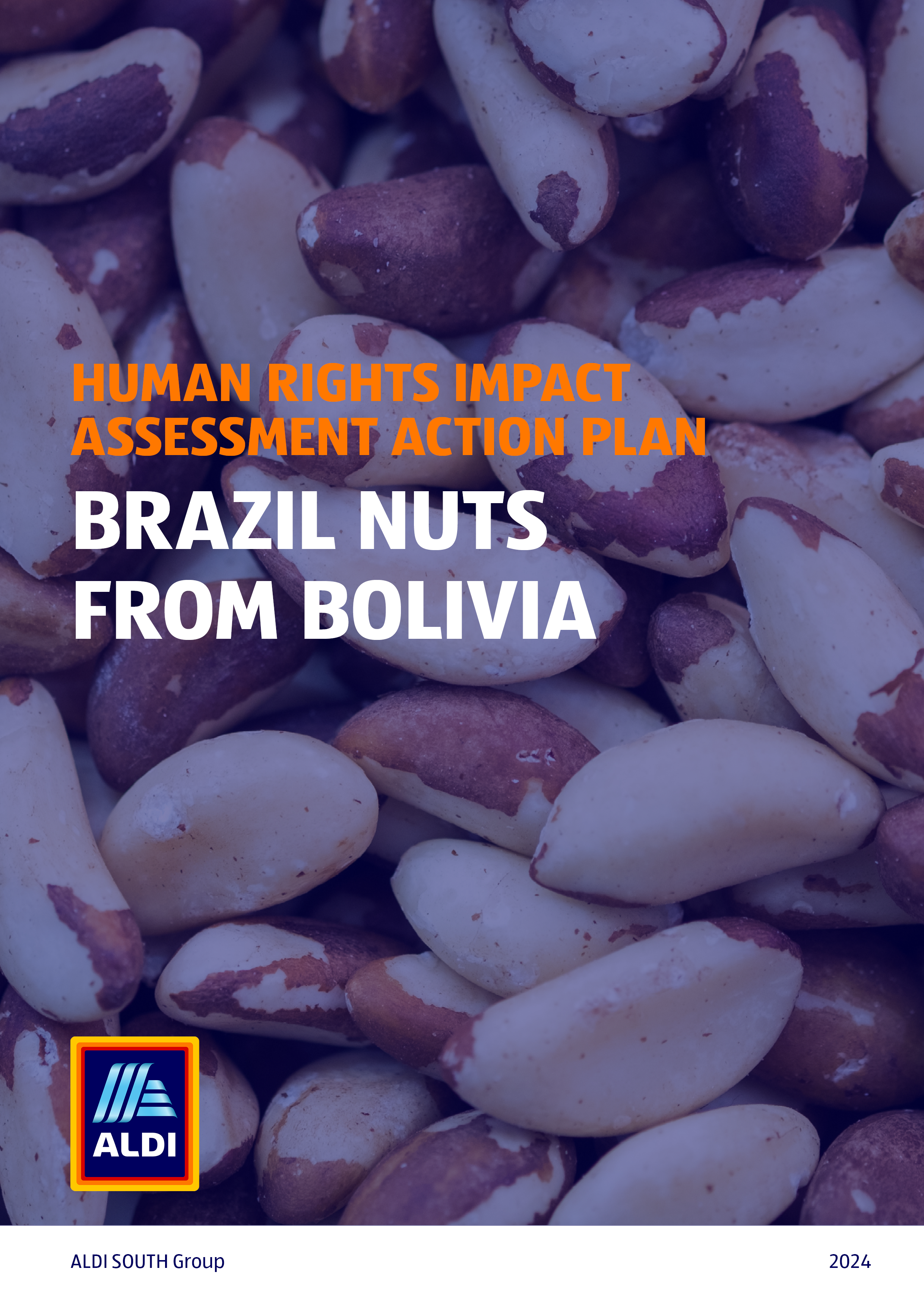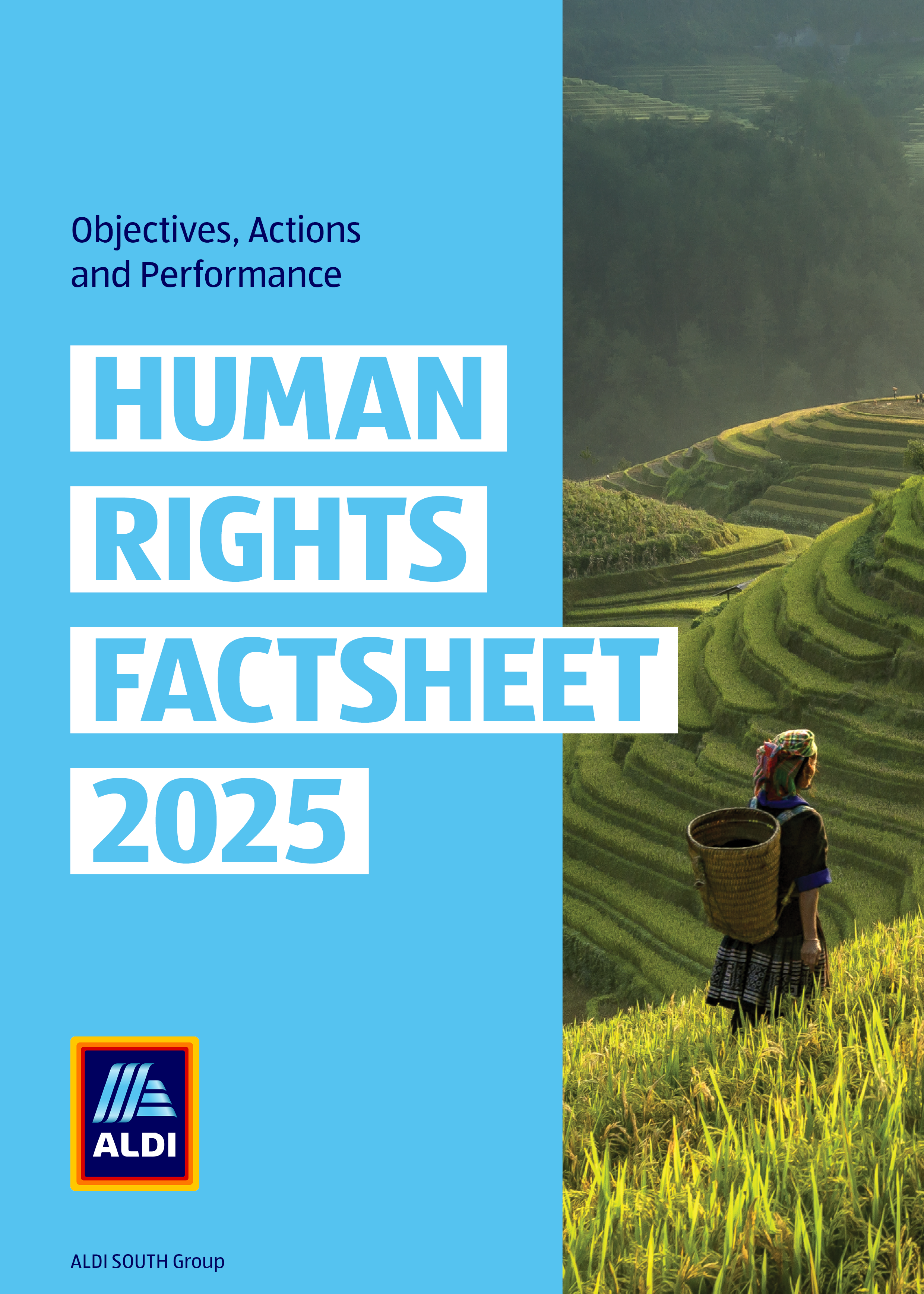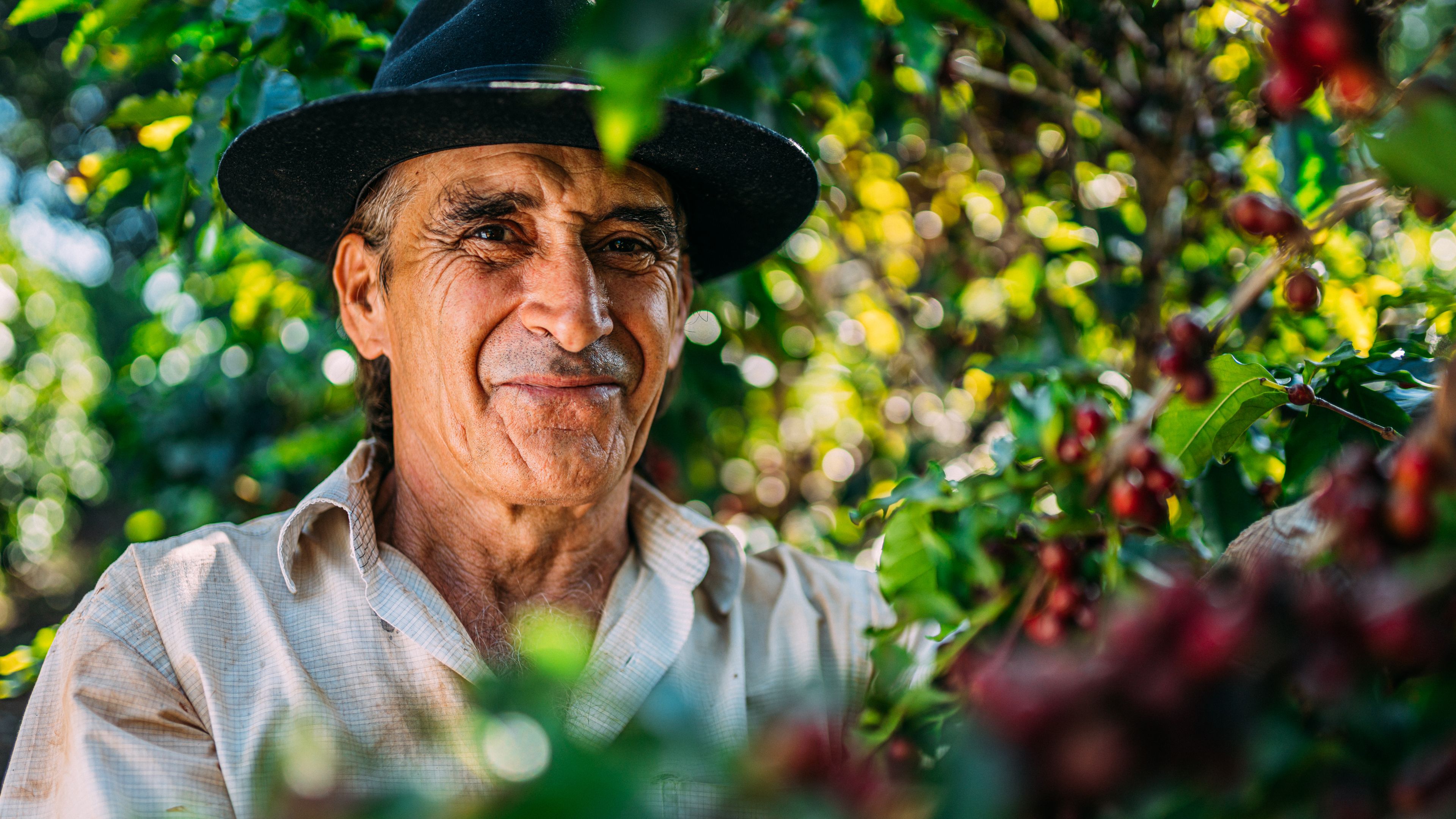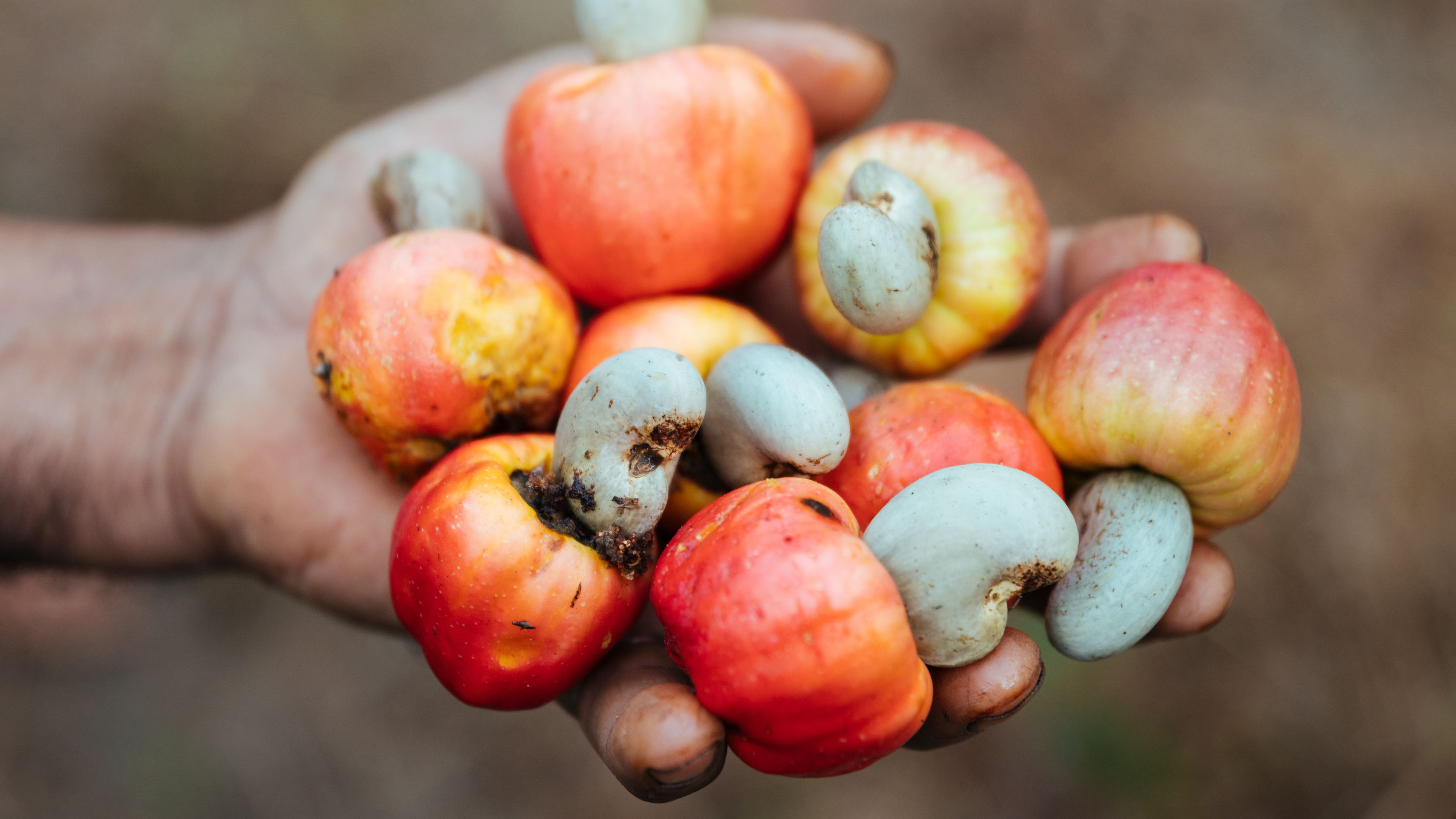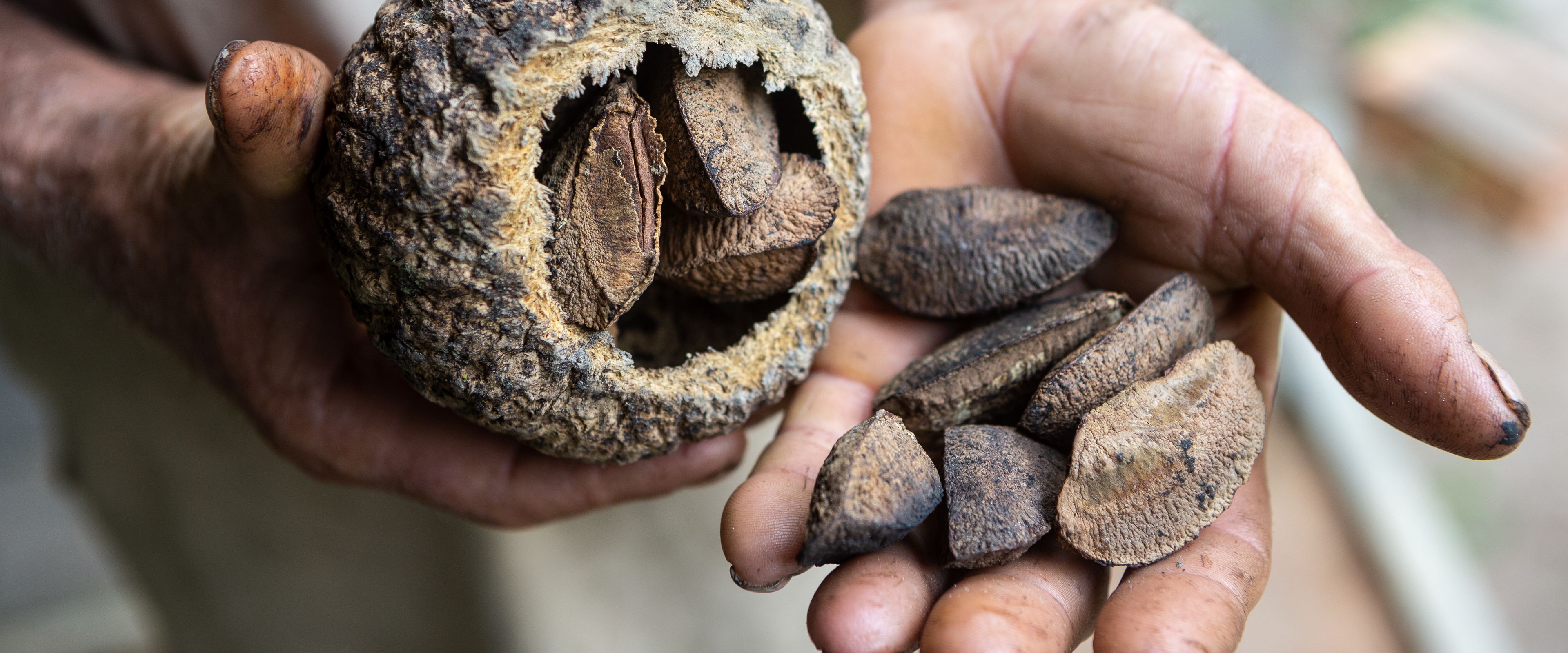

The human rights risks relating to Brazil nuts are considered significantly higher than those related to other nuts. This is due to social and economic circumstances in their countries of origin and their “wild” collection process. In 2020, we decided to conduct a Human Rights Impact Assessment (HRIA) on Brazil nuts from Bolivia, where the ALDI SOUTH Group purchases most of the product.
Human Rights Impact Assessments (HRIAs) identify existing issues alongside potential risks in our supply chains. They help us understand the impact our company activities and business relationships have on workers and their communities. This study engaged with people directly affected by ALDI’s Brazil nut supply chain (e.g. farmers, processing factories, traders), as well as external stakeholders (e.g. trade unions, government, civil society organisations, and NGOs). The goal was to generate awareness of human rights impacts and gain insights into the organisation and structure of the Brazil nut sector in Bolivia.
Key challenges when sourcing nuts
Nut supply chains can be highly complex, with different origins and production processes for each nut type. Brazil nuts, for example, are a “wild” product found in tropical forests and collected by hand. While hazelnuts and cashews are mainly produced by smallholder farmers, almonds generally originate from large plantations. In some cases, the raw materials get transported to other countries for cracking, shelling, and final processing. This makes it challenging to achieve traceability and transparency along our nut supply chains.
Together with our business partners, we promote fair working conditions and environmentally friendly production in the cultivation and processing of nuts.
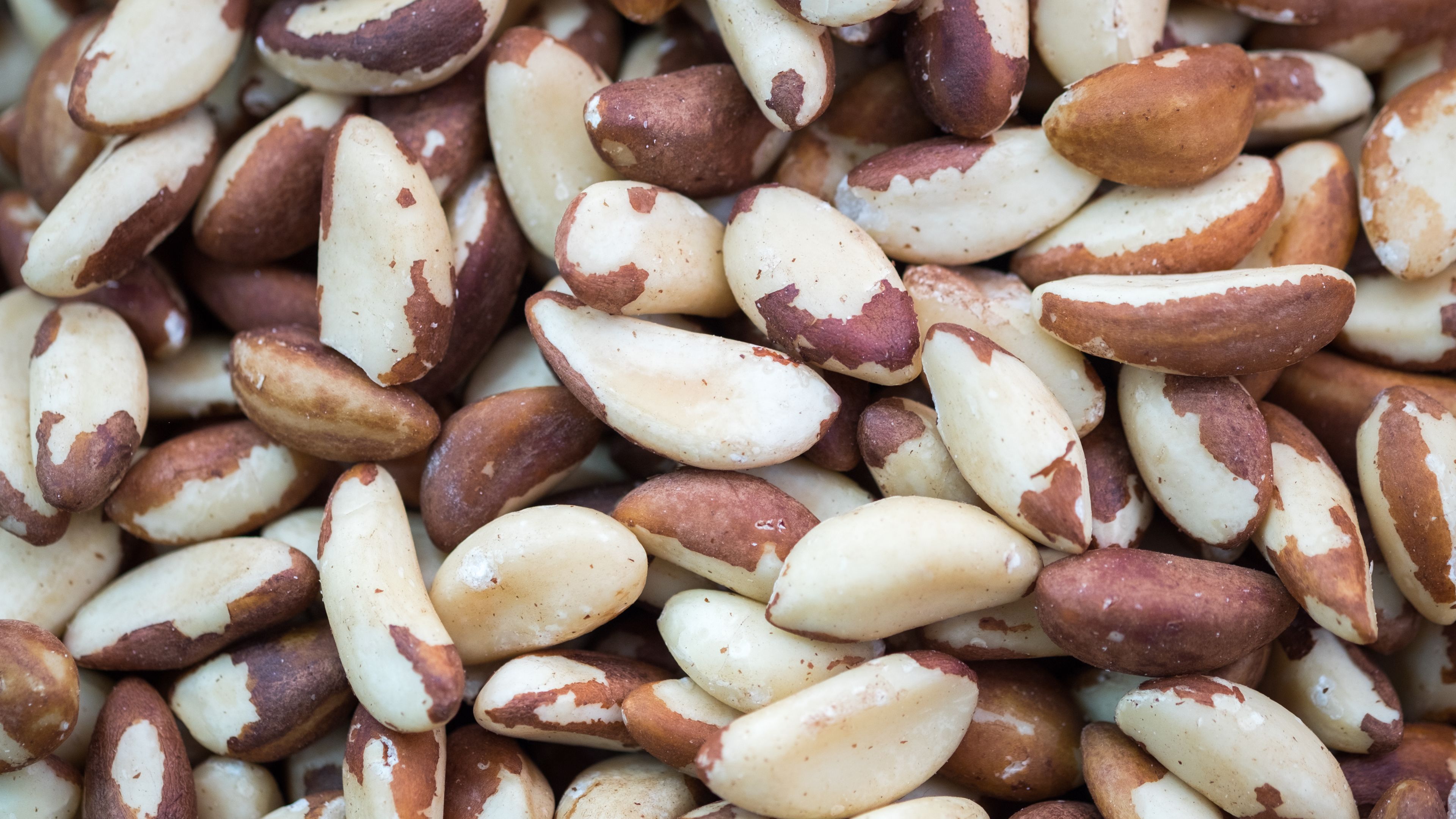
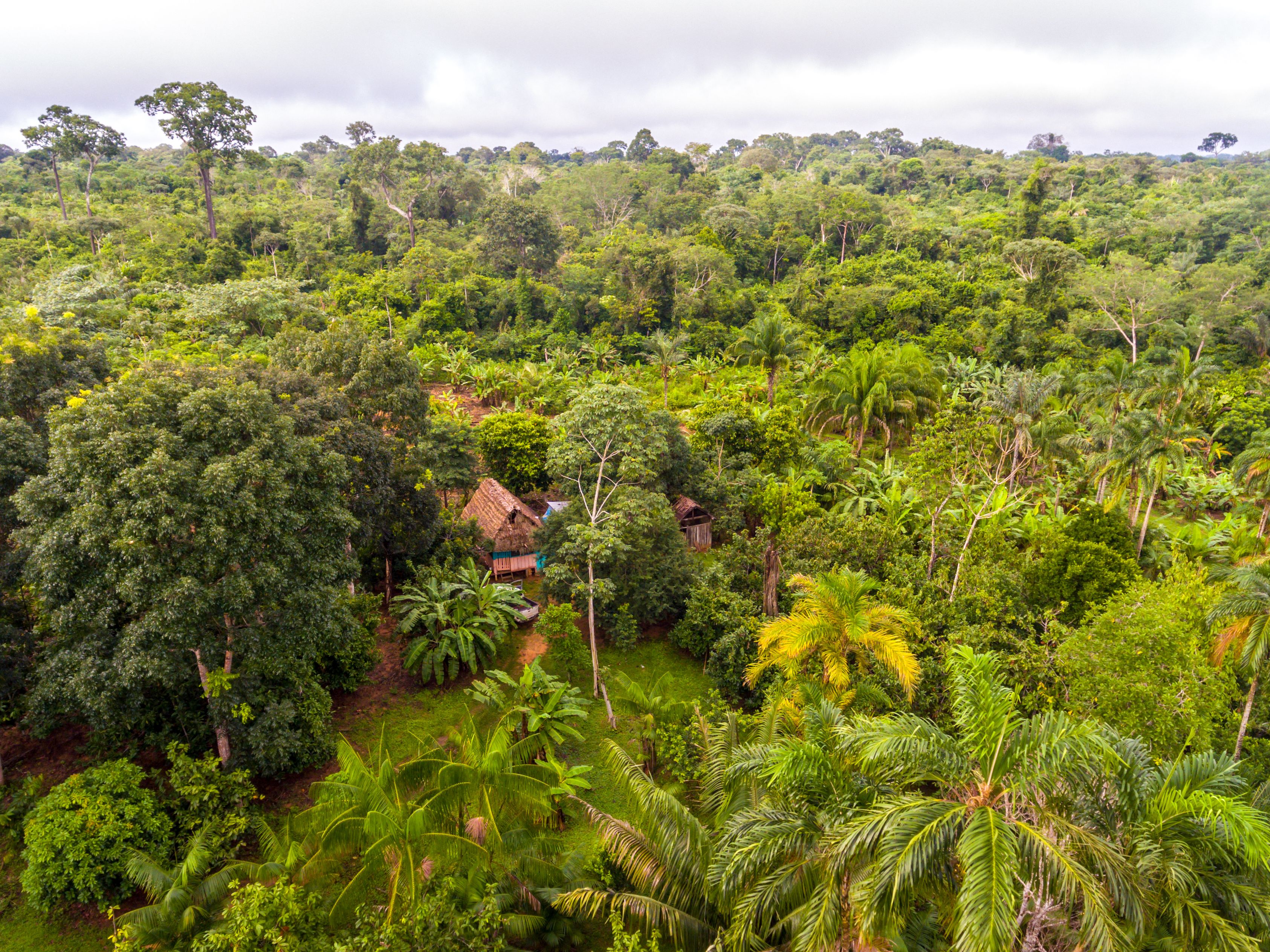
Why Bolivia as a focus country for the HRIA?
Bolivia is the world’s largest exporter of Brazil nuts and the leading country of origin for Brazil nuts purchased by ALDI. Their harvest and production significantly contribute to livelihoods in Bolivia’s northern Amazon region. This provides an important incentive for communities to protect these areas from deforestation.
The nuts grow as “wild” products in remote rainforest areas, which makes effective oversight and labour law enforcement during harvesting extremely difficult. The transport of nuts out of the forests can pass various aggregators and may take up to weeks. Further, international traders buy and resell Brazil nuts often before processing factories have sourced the raw material. As a result, there is little traceability on exact nut origins, as they could be sourced from different areas and facilities.
Key Finding for us as a retail company
Through this project, we gained in-depth knowledge of the Bolivian Brazil nuts sector and supply chain. We identified impacts with potential linkage to our business activities and learned where ALDI can initiate change. These findings help us to strengthen our ALDI standards and due diligence.
- The most negative impacts are during harvest operations and processing at factory level.
- Variations in supply and demand, as well as price pressures along the supply chain can contribute to low wages and little predictability in incomes.
- Limited use of certification, low social standards, and little monitoring means limited pressure for processing factories to establish good practices.
- There is a lack of labour law enforcement, which contributes to negative impacts e.g., low health and safety standards, discrimination and gender-based disadvantages.
- Smallholders were identified as highly vulnerable due to their position in the export value chain with limited leverage to negotiate prices.
Deep dive: Methodology and impact assessment
A strict HRIA methodology was followed to conduct this study. It included desktop analysis, remote stakeholder engagement, an impact assessment and developing recommendations.
The findings are based on baseline research and reports from representative stakeholders. We identified and ranked salient impacts on each of the supply chain activities in scope. Therefore, different factors were taken into account, such as the likelihood of an impact in relation to a given activity, whether the impact was positive or negative, and its significance. Read the complete assessment for more detailed information.
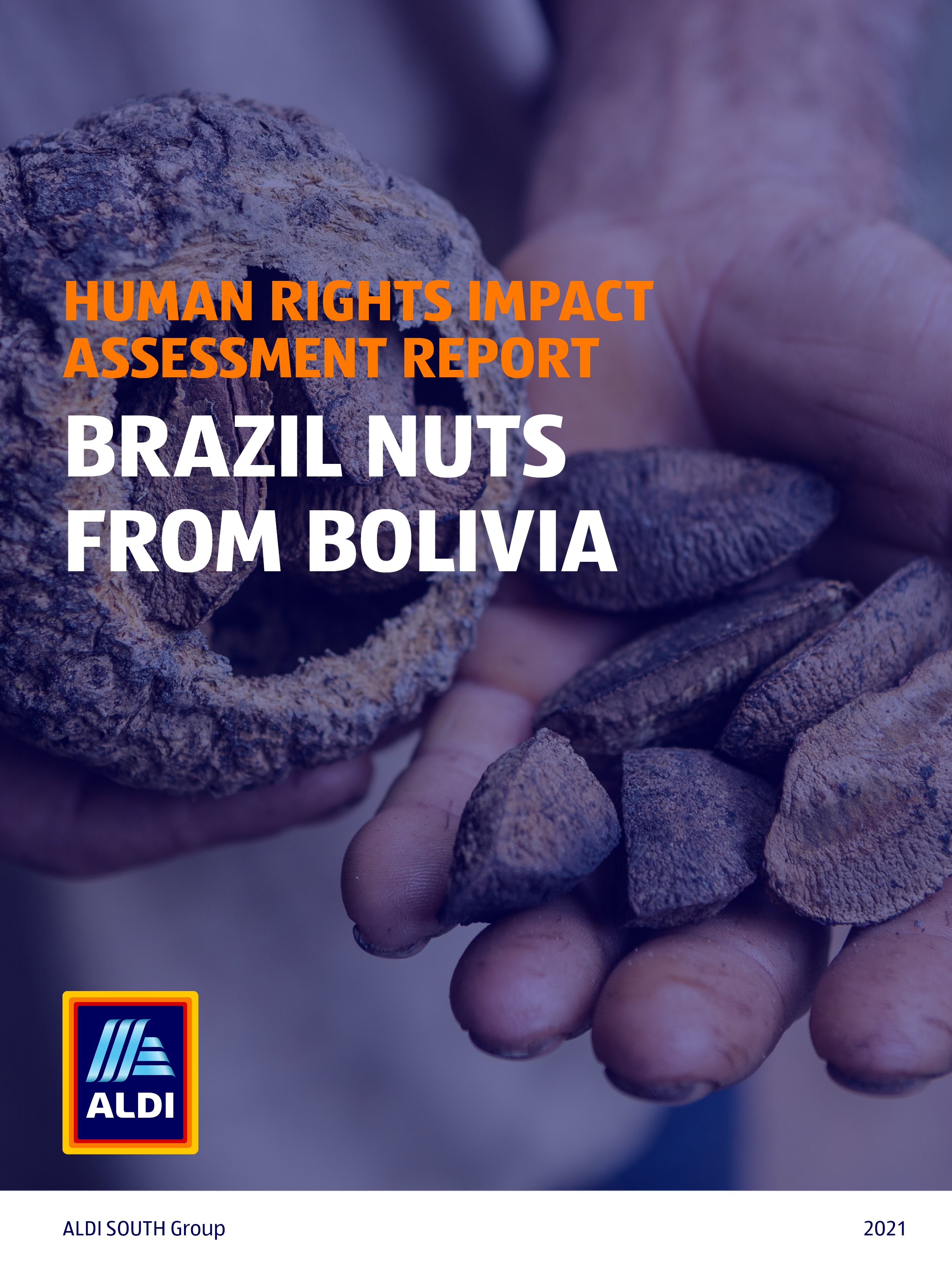
Brazil nuts origin and harvest operations
Harvesting Brazil nuts is not an easy job - they grow on large trees in the Amazon rainforest. The ripe fruits drop down from about 50 to 60 meters high and pose a risk of injury when entering the forest. There is only a limited timeframe to collect the nuts as the mycotoxin levels increase when they lay on the ground. Workers collect the ripe fruits and split them with a machete. The nuts are then packed into bags of up to 60 kilos and transported by foot, motorcycle or barge to drying sheds, huts or areas before being sold.
The remoteness of the harvest locations and high rates of labour informality make law enforcement challenging. The existing piece-rate payment system and the short harvest period (Nov-Feb) requires workers to harvest as many nuts as possible. As a result, they often utilise their family members and part of the cultural norm is that children from a certain age would help to collect or transport the nuts.
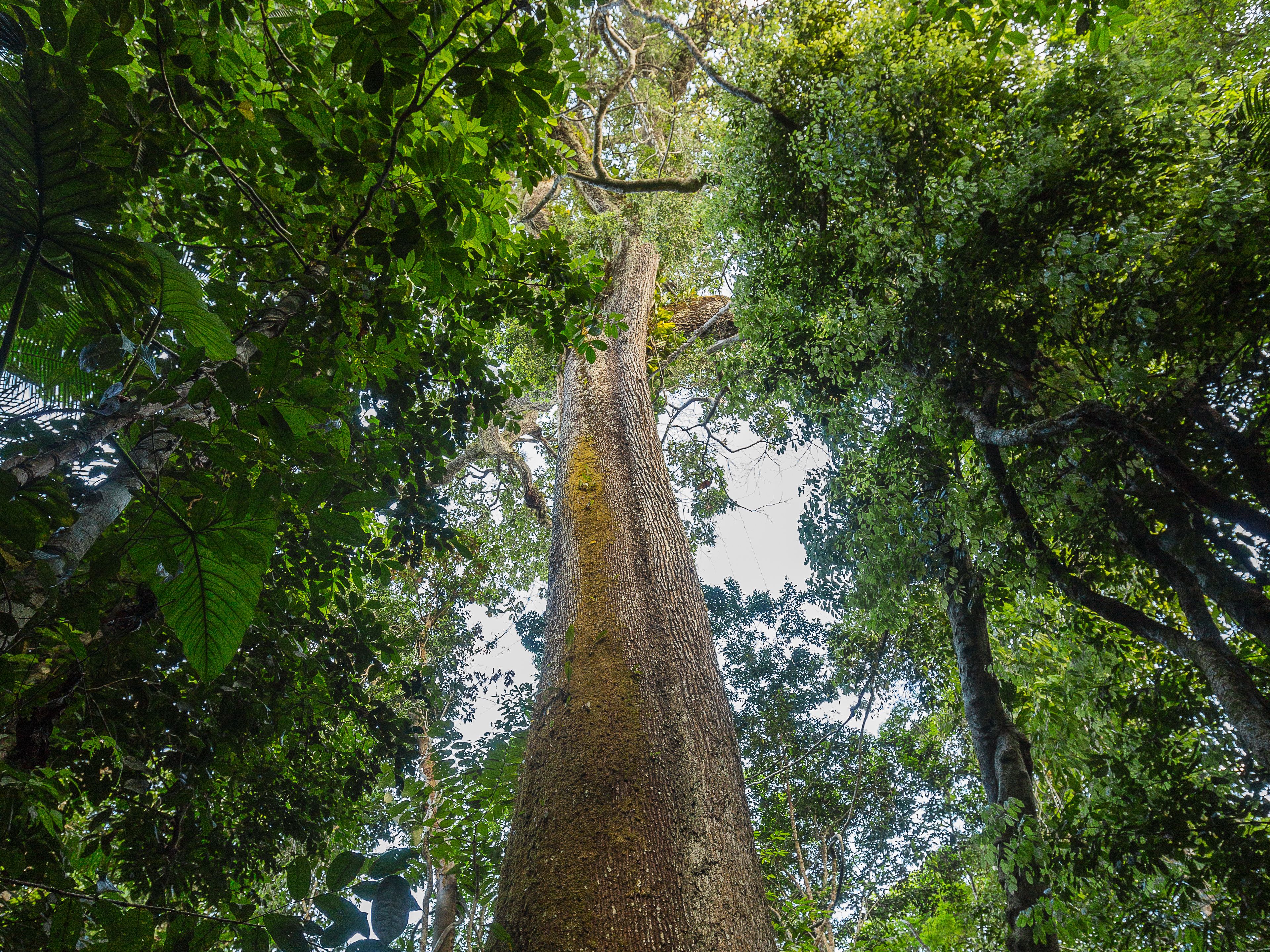
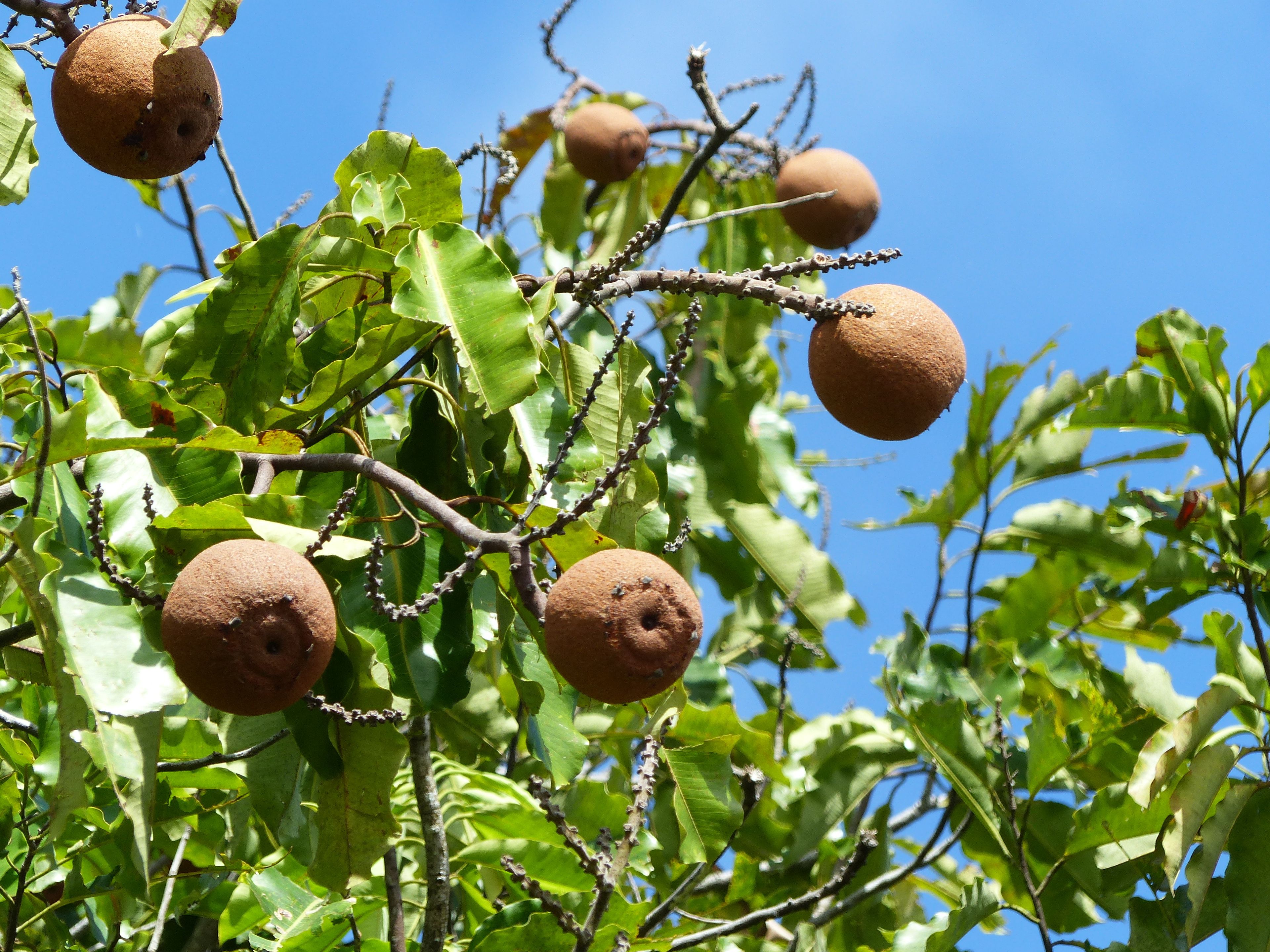
Our actions to drive change
Based on the recommendations of this study, ALDI has developed a Human Rights Action Plan specifically for our Brazil nut supply chain. It focuses on areas where we have potential leverage to address negative and enhance positive impacts for rightsholders.
- Continuing and intensifying stakeholder engagement: The HRIA key findings and Action Plan were translated to Spanish. After reviewing the results collaboratively, the action plan was reviewed and refined with selected stakeholders.
- Decreasing complexity and strengthening ALDI’s supply chain: The number of intermediaries in the supply chain reduces visibility and direct control over standards. Supply chain length is ultimately determined by ALDI’s direct supplier selection and the terms and conditions it places when sourcing from those suppliers.
- Strengthening social audits at processing level: Currently, social audits in Bolivian processing facilities are rare. To target the limited social standards and hence the human rights risks linked to processing, ALDI Sustainability Assessments are conducted in selected processing facilites.
For more information, read the full HRIA Report on Brazil nuts from Bolivia and the updated Human Right Action Plan.
